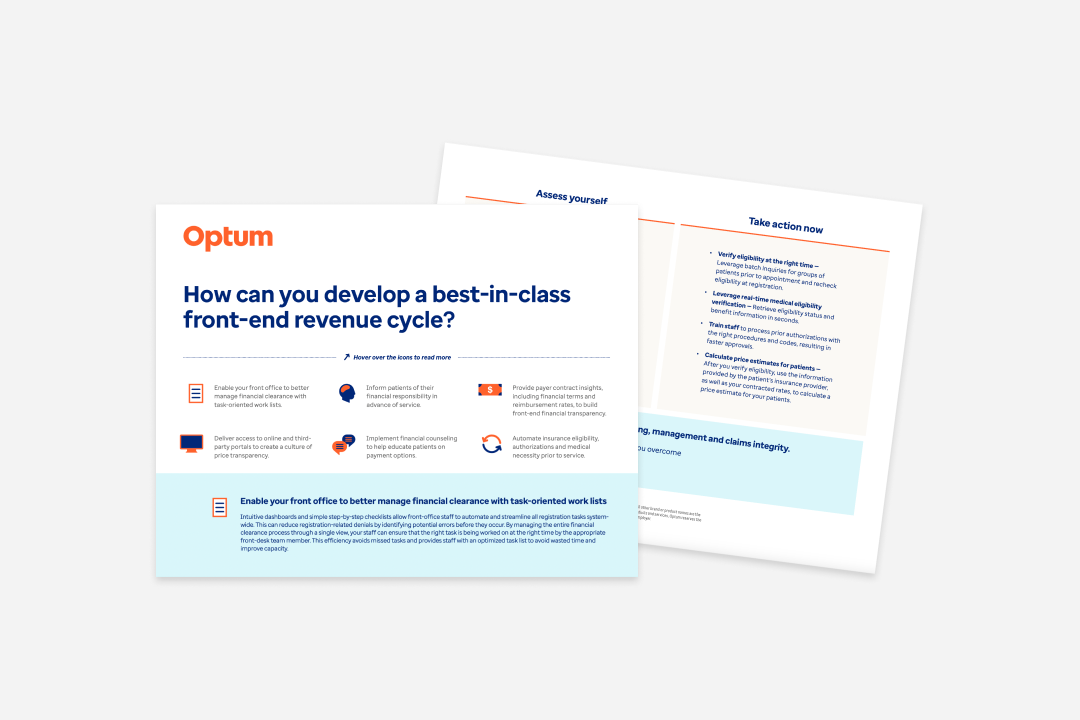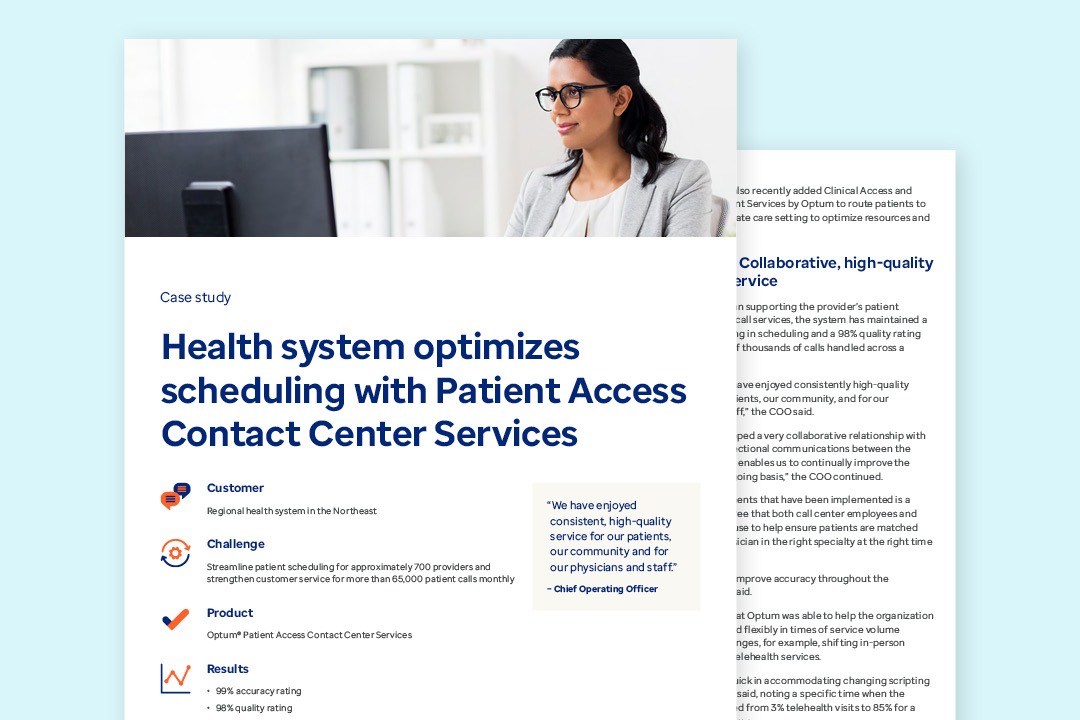Assessing readiness and values alignment is key to RCM success
When it comes to revenue cycle management (RCM), many health system finance leaders are seeking outside help. They’re looking to reduce administrative costs and ensure more timely, accurate payments from health plans and consumers. Labor shortages, increasing regulation and growing demands for better consumer experiences are emphasizing the importance of third-party support for RCM functions.
Yet there’s a seemingly endless array of choices, from point solutions to technology and services partnerships. How can healthcare leaders evaluate their options to make the right decision?
This guide from Everest Group explores the growing relationship between healthcare providers and RCM vendors through the lens of 2 partnership models: technology products and managed services. The guide looks at each model’s role in alleviating challenges, and what lies ahead in future-proofing RCM.
Related healthcare insights

Article
Learn six ways to take your operations from good to great.

Guide
Explore the six focus areas for improving performance to create an industry-leading middle revenue cycle for your hospital.

Case study
See how a hospital streamlined scheduling for about 700 providers and strengthened customer service for over 65,000 patient calls monthly.
